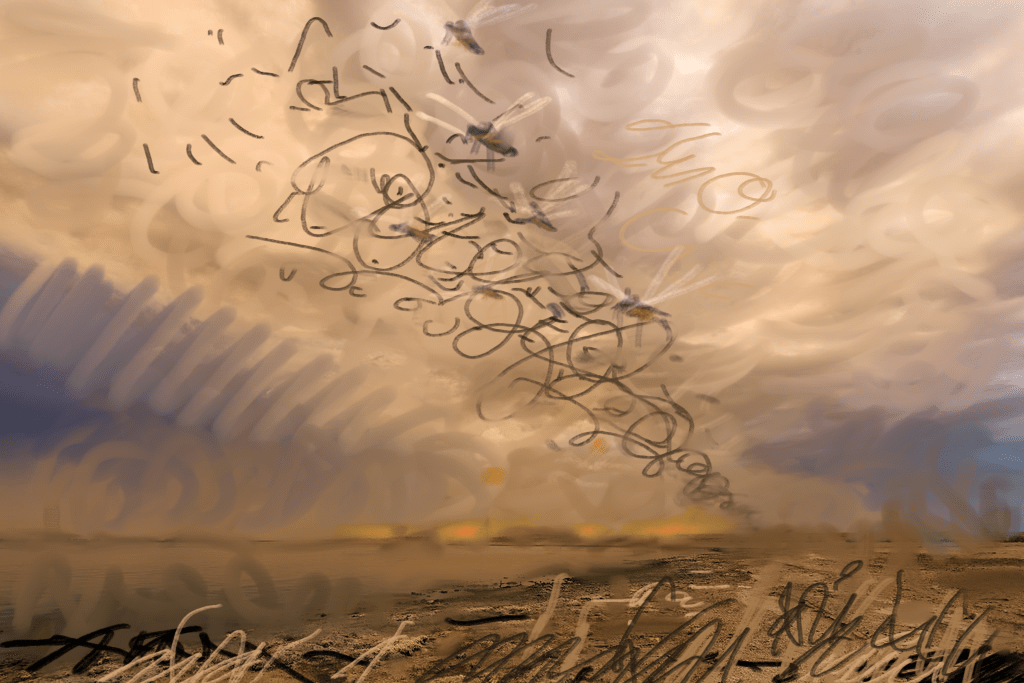Experts are predicting a severe drought in Kazakhstan. Additionally, locusts are expected to invade the country, and the flood situation will be even worse next year. That’s according to Kazakhstani ecologist, Dmitry Kalmykov, who further explained to the Times of Central Asia in an interview that climate change in the region is already irreversible.
“There is an increase in the frequency and intensity of all extreme weather events, including drought, floods, catastrophic precipitation, storms, downpours. Simply put, there are, unfortunately, going to be more of these phenomena. In addition, the weather patterns relative to the seasons are changing. Precipitation falls at a different time of the season than we have come to expect. For example, last year in August rains destroyed up to 30% of the harvest in some regions of Kazakhstan. Already now, there are disappointing forecasts going forward. But it’s good to have time to prepare,” Kalmykov told TCA.
Today’s floods are an indicator of a lack of clear forecasting, Kalmykov said, stating that the government had information about the amount of snowfall, ground freezing, and moisture reserves. Yet no conclusions were drawn on the severity of the risks of high groundwater levels.
“All over the world, even in Kazakhstan’s environmental laws, this is called the need to adapt the economy to climate change that has already occurred. This is declared by Kazakhstan at the international level, but it is not fulfilled. Literally everything needs to be changed, including agricultural practices, water management, construction and emergency preparedness. This is an evolutionary law – if a species does not adapt to changed conditions, it does not survive. It is time for us to act,” he warned.

Dmitry Kalmykov
Kazakhstan and China are expected to create a research center to combat drought. The two countries’ academies of sciences will jointly study problems of ecology and land resources. However, Kalmykov is skeptical about this initiative, as he doesn’t believe in the authorities’ ability to apply practical science in real life.
Earlier, climate change expert Kirill Pavlov released a drought forecast for Kazakhstan, which he attributes to the El Niño effect.
Yesterday, TCA published an interview with Dr. Petr Svoik, a Kazakhstani economist and former head of the Anti-monopoly Policy Committee, in which he emphasized the need for a supranational structure to combat climate change, so that each state cannot arbitrarily come to “its own truth… There is only one interstate structure – the Supreme Eurasian Economic Council – where ministers of the Eurasian Economic Union (EAEU) countries can, among other things, make decisions regarding water resources, but these decisions are made by consensus. There is no center that adopts arbitration and final order. That is, this body cannot resolve a water dispute between, say, Kazakhstan and Kyrgyzstan, and there is no economic effect,” he stated.
In an earlier interview with TCA, despite admitting that this could be “potentially the most severe disaster in over 80 years,” Deputy Foreign Minister of Kazakhstan, Roman Vassilenko, stated that Kazakhstan is “effectively handling the crisis independently, and has not actively sought international assistance. The country’s emergency services, government bodies, and local communities are collaboratively addressing the challenges posed by the flooding,” he said. “The government is also working on creating an advanced information system. It is intended to model various emergency situations, including floods and fires, enabling accurate forecasting, and providing recommendations and actionable steps for response,” he added.



